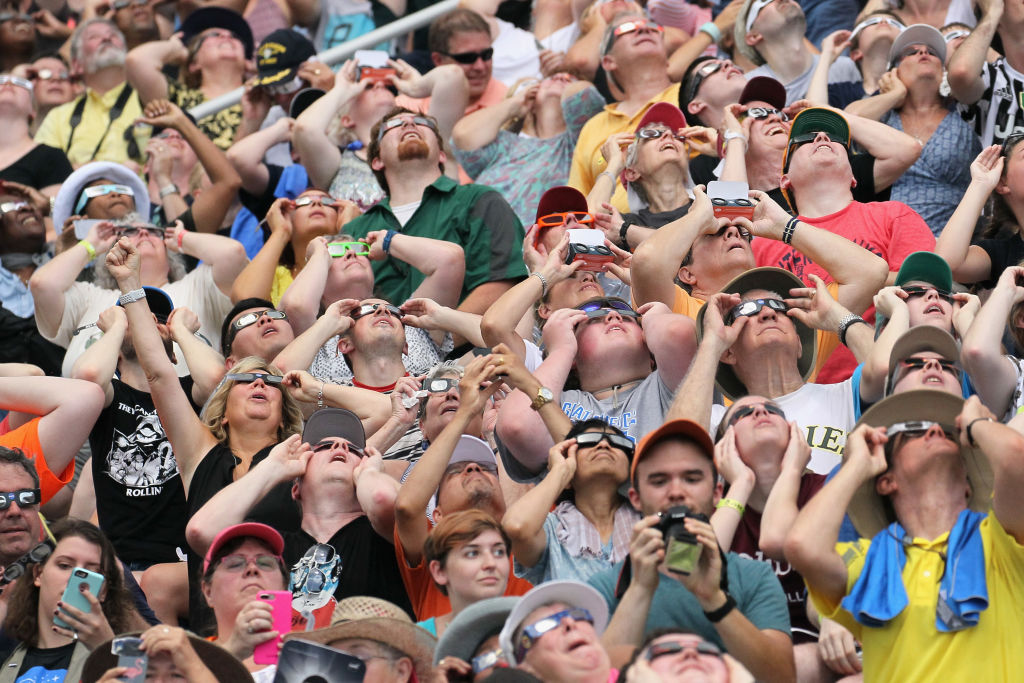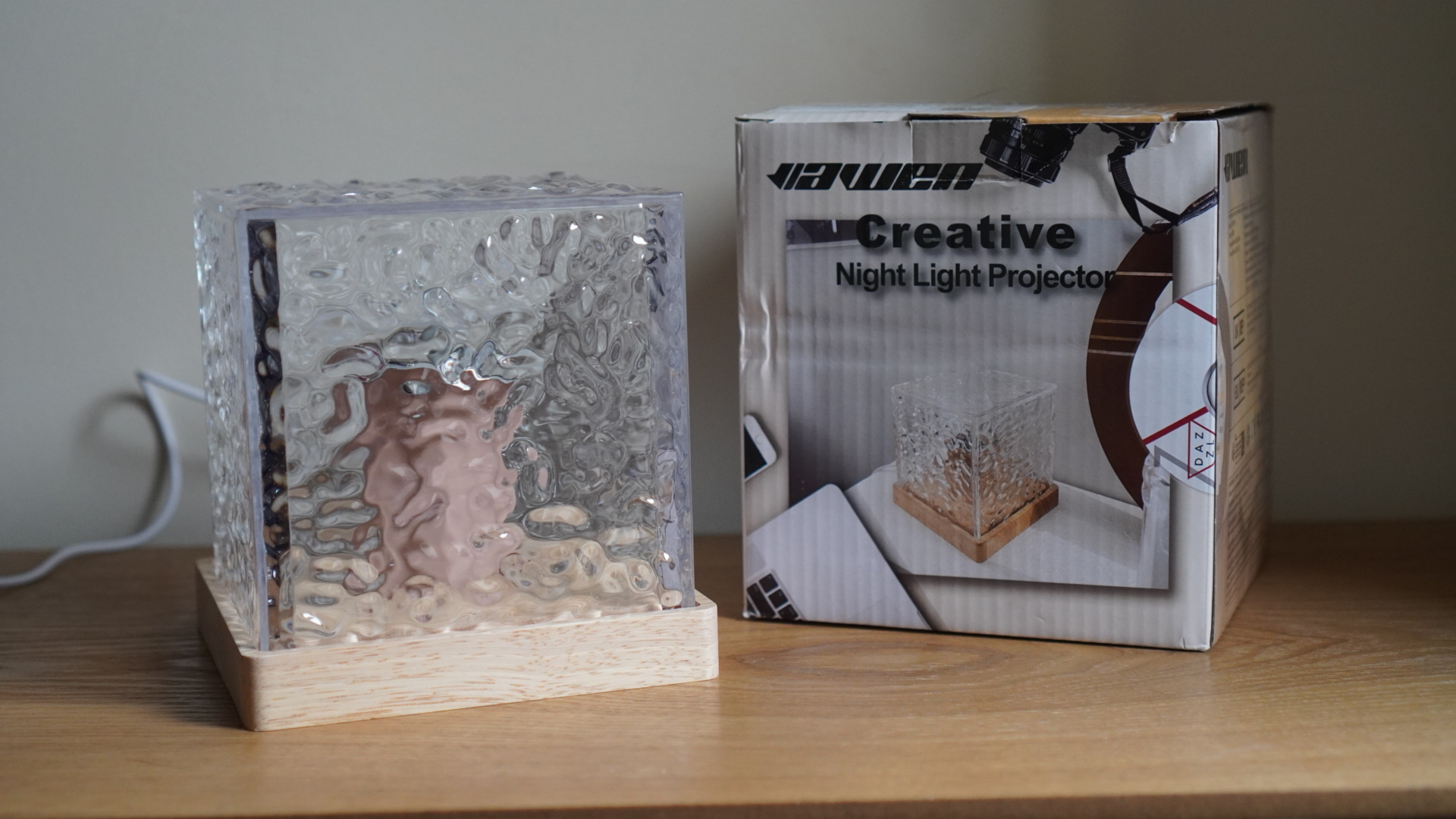Total Solar Eclipse Leaves Southern Illinois College Town in Awe

CARBONDALE, Ill. — Pesky clouds threatened to spoil the view for tens of thousands of people who journeyed from near and far to this southern Illinois college town to witness the Great American Solar Eclipse. But in the end, a few precious and unobscured seconds of totality were enough to wow the crowds here at Saluki Stadium.
"As it was happening, I couldn't help but tear up," said Anne Gundry, who traveled first from Long Beach, California, to Chicago before driving to Carbondale. "It just felt so amazing, so primal, because you're really aware of how small you are in the universe."
Tickets to watch the solar eclipse inside the 15,000-seat stadium were sold out, according to Southern Illinois University officials, and people of all ages sat for hours in the stifling heat and humidity to glimpse the rare celestial event. [See Amazing Photos from the 2017 Great American Solar Eclipse]
Carol Mader made the journey from Ann Arbor, Michigan, just to experience totality, she said. "It was absolutely amazing, awesome — almost a once-in-a-lifetime experience," she told Live Science.
Solar eclipses are relatively common occurrences worldwide, but the last time a solar eclipse cast a shadow across all of the contiguous United States was in 1918. This time around, Carbondale earned a coveted spot as an eclipse hub because of its location along the so-called path of totality, where people can see the moon completely block the sun's light. The college town was also unique because it was slated to experience one of the longest periods of darkness during totality in the entire country — that is, until a huge patch of puffy clouds rolled in.
As the seconds ticked by to totality, people in the stands stomped their feet, creating a rumble that rolled through the stadium. Chants of "move that cloud!" emerged and spread quickly throughout Saluki Stadium. And as tiny pockets of light emerged from the clouds, the stadium erupted in cheers.
"There was so much anxiety about not seeing it at all, so when the clouds parted and everybody was stomping their feet and cheering — that was so much fun," said Jill Barancik, who came to Carbondale from Chicago.
Get the world’s most fascinating discoveries delivered straight to your inbox.
For many in the crowd, it was their first time seeing a total solar eclipse. Katie Oppenheim, who traveled with Mader from Michigan, said the experience far exceeded her expectations.
"I think the ring around it was more impressive than I thought it was going to be," Oppenheim told Live Science. "I saw pictures online, but it was extraordinarily impressive. Almost perfect."
David Hillinger traveled with his family, Gundry and Reigh Levinstein — the self-described "solar-migos" — to see the total solar eclipse, which he said has been on his "bucket list." [Crossroads of the Solar Eclipse: Best Photos from Carbondale 2017]
"It's a combination of both the ultimate thrill and the ultimate moment of peacefulness, because it's all of a sudden dark," Hillinger told Live Science. "It's a wonderful contradictory experience. Thrilling and yet calmness."
Officials estimated that 30,000 people descended on Carbondale for the solar eclipse, based on an analysis of traffic flow by state police, Mayor John "Mike" Henry told Live Science. He watched the solar eclipse with family and friends outside of his home, less than 1 mile (1.6 kilometers) from downtown Carbondale.
"I thought it was phenomenal," Henry said. "My wife and I hugged and kissed during totality, and that was our celebration of it."
But the eclipse didn't just draw out-of-towners to Carbondale. Jasmine Bryant and Kamaria Coleman, both master's students in biological sciences at Southern Illinois University, were in the stands at Saluki Stadium for the celestial event.
"We're one of the few places in the country that had a total eclipse, so it doesn't make sense for me to stay at home when history is supposed to be happening here," Bryant said.
"My mom is a science teacher, and she was like, 'You better go watch the eclipse,'" Coleman told Live Science.
Coleman said she was disappointed when the clouds moved in. "I was just so sad. But I'm probably going to look back on this moment and be like, 'It was so cool.' At the concession stand, I met people from California, and from around the world. So just to be in the community and say I was there, it was a good thing."
Original article on Live Science.

Denise Chow was the assistant managing editor at Live Science before moving to NBC News as a science reporter, where she focuses on general science and climate change. Before joining the Live Science team in 2013, she spent two years as a staff writer for Space.com, writing about rocket launches and covering NASA's final three space shuttle missions. A Canadian transplant, Denise has a bachelor's degree from the University of Toronto, and a master's degree in journalism from New York University.
 Live Science Plus
Live Science Plus





